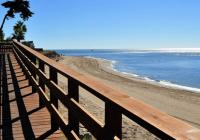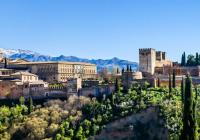
The most important decision any parent can make for their child is deciding which school to send them to. Ensuring that they are happy at school and receive a good standard of education is essential, which can make the whole process feel daunting. This is especially true if you’re trying to choose a school in Spain, where you might not be as familiar with the education system. To help make the process as smooth and easy as possible, here are some of the key factors you should consider when choosing a Spanish school for your child:
- Which Type of School Will You Choose?
The type of school you choose is largely dictated by your budget, with Spanish schools divided into three categories: state-funded (público), private subsidised (concertado) and private. The most popular type of school in Spain is public school, which is free, but you will need to pay for additional items such as text books and school trips. If you would like your child to be educated using the same system you would find in your home country, you may wish to consider an international school. These are paid private schools that teach an international curriculum (Either the International Baccalaureate or the curriculum of your home country) and there are prevalent in Spain, with the country boasting the highest number of international schools in Europe.
- How Will Your Child Get to School?
You will need to take into account how far away your chosen school is: will you be able to walk to school, will you need to drive your child every day, or is there an accessible public transport route? Some schools may offer a school bus service, but not all will do this. You should consider how long the commute to school will add to your child’s day, and how you will manage this logistically.
- What Languages Will the School Teach?
If you’re an English-speaking family then this is a particularly important question. Some public schools may be bilingual, but on the whole if you want your child to be taught in English then you will need to choose an international school. In Spanish public schools, English is taught as a second language from around six years of age. Some secondary schools will then offer a second foreign language such as Italian, French or German.
In different regions of Spain, different Spanish languages may be taught too. In Catalonia, most lessons at school are taught in Catalan, for example.
- Will Your Child Cope With the Long School Hours?
Compared to other EU countries, school hours in Spain are long. Some secondary schools will use 9am-5pm school hours (breaking for lunch between 1pm and 3pm) whilst others will start the school day at 8am and finish at 2.30pm, without breaking for lunch. At primary school level, you can expect your child to be taught for around 25 hours a week. This is split in different ways depending on the school. . For example, it can either be split in two with lessons from 9am to 12:30am, then a lunch break and then classes from 2:30pm to 4pm. Children can either stay at school or go home for lunch. Other schools have a continuous school day (jornada contínua) with lessons from 9am until 2pm. Looking at how the school day is broken up, and which system will work best for your child, is key to choosing the right school.
- How Many Children Are in Each Class?
The average number of children per classroom in a Spanish state school is 21. This may differ depending on region, and numbers may also be different in private schools. The higher the student to teacher ratio, the lower the quality of the education will be, so it’s important to assess how many children your child will be learning alongside when picking a school.
- How Does the School Perform?
A good way of knowing if a school is doing well is by looking at the rankings, or the results students have obtained in external exams. These should be published publicly, with lists available for both public and private schools. Private schools, and particularly British and International schools, usually top the national rankings. But there are many highly sought-after public schools in Spain too.
- What Facilities and After School Activities Are Available?
After school activities are a great way of nurturing your child's interests, and can also be a Godsend for working parents who need their children to stay in school a little longer. Ensure the activities available meet the interests of your child, and does the school have the facilities to run these well? Whilst the facilities available probably shouldn’t be the deciding factor in choosing a school, having well-equipped and well-maintained facilities will play an important role in shaping your child’s educational experience.
Have you always dreamt of moving to Spain with your young family? Whether you’re looking for golden mile properties in Marbella or bargain property in Andalucia, our local property experts are perfectly placed to turn your dreams into a reality. Why not get in touch to find out more about how we can help you.

 English
English Español
Español Deutsch
Deutsch Français
Français Svenska
Svenska Nederlands
Nederlands Italiano
Italiano Norsk
Norsk Русский
Русский

































